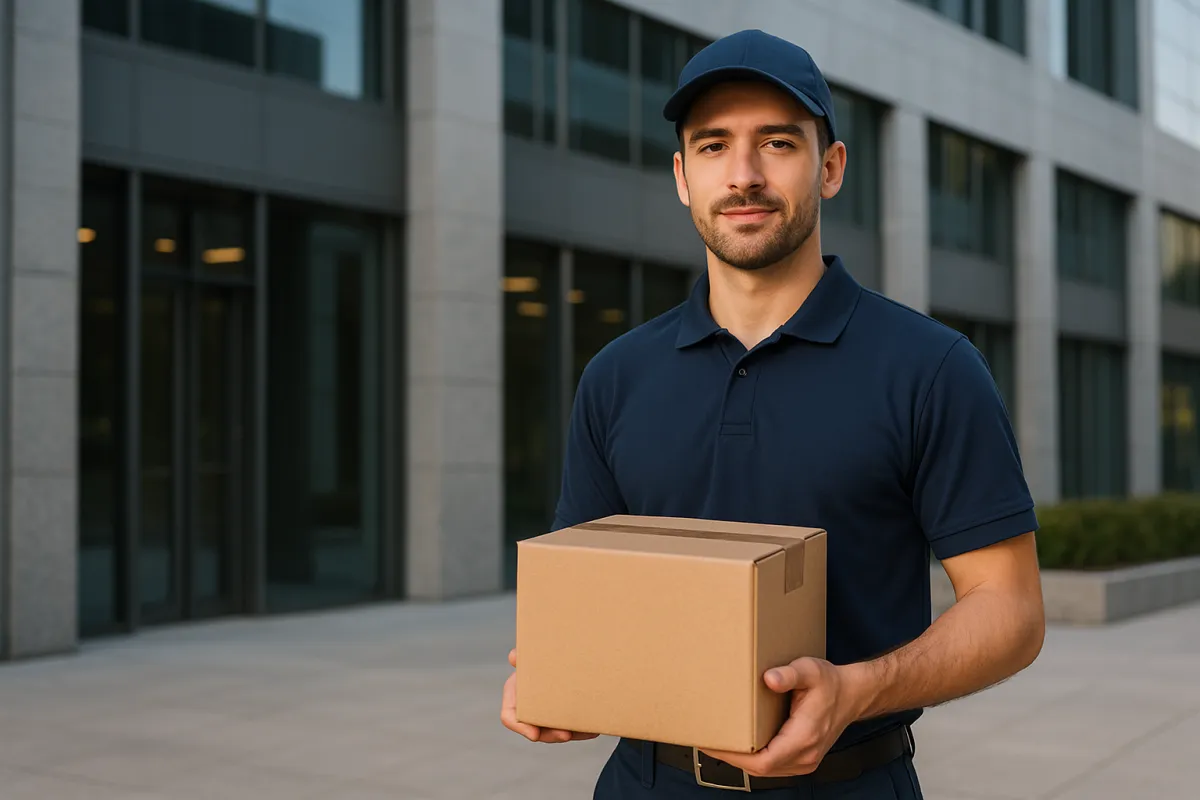
Why Businesses Should Avoid Gig-Economy Delivery Apps for Important Items
In the era of instant gratification, gig-economy delivery apps have proliferated, offering on-demand drivers to pick up and drop off everything from meals to documents. While these platforms excel at low-stakes errands, they pose serious risks when entrusted with important business shipments—legal contracts, medical supplies, high-value merchandise, or confidential data. This article explores why businesses should think twice before using gig-economy couriers for mission-critical deliveries and highlights the advantages of partnering with a specialized courier service like Express Courier Services.
1. Lack of Standardized Training and Professionalism
1.1 Inconsistent Driver Qualifications
Gig-economy drivers onboard with minimal vetting—often just a background check and a driver’s license. They receive no formal instruction in:
Secure handling of sensitive items
Temperature-controlled transport
Chain-of-custody protocols
By contrast, specialized courier providers require rigorous training—covering everything from hazardous materials handling to customer privacy and professional conduct.
1.2 No Uniform Operating Procedures
Professional couriers adhere to documented standard operating procedures (SOPs) for pickup, packaging, and delivery. Gig apps leave each driver to interpret instructions, leading to:
Misreads of handling instructions
Improper packaging of fragile or perishable goods
Unreliable adherence to time windows
2. Unpredictable Reliability and Service Levels
2.1 Variable Availability
Gig-economy capacity spikes and dips with local demand. During peak hours or bad weather, drivers may be scarce—causing:
Missed pickups
Unplanned delays
No-shows
A specialized courier service guarantees coverage through dedicated fleets and contingency backups, ensuring consistent service levels.
2.2 No Guaranteed Time Windows
Most gig platforms offer “as soon as possible” delivery without firm cut-offs. Businesses handling time-sensitive materials—like legal filings or medical specimens—need explicit service level agreements (SLAs) with financial remedies for missed deadlines.
3. Insurance and Liability Gaps
3.1 Insufficient Coverage
Gig-economy drivers typically carry personal auto insurance, which excludes commercial use. In case of:
Accidents involving third-party damage
Lost or damaged cargo (e.g., electronics, documents)
Theft of high-value items
Businesses can be left uninsured. Specialized couriers carry:
Commercial auto liability
Cargo insurance covering “all-risks” or temperature excursions
Professional indemnity for handling errors
3.2 Misclassification Risks
The U.S. Department of Labor warns against misclassifying employees as independent contractors, exposing businesses to wage and hour violations. Leveraging gig drivers to avoid corporate hiring liabilities can backfire with penalties and legal action.
4. Security and Chain-of-Custody Vulnerabilities
4.1 No Tamper-Evident Controls
Important business items often require tamper-evident seals and documented handoffs. Gig drivers lack:
Secure locking containers
Chain-of-custody logs verifying each transfer
Professional medical or legal couriers provide audit-ready records—critical in regulated industries.
4.2 Data Privacy Concerns
Couriers handling protected health information (PHI) or confidential corporate data must comply with HIPAA or GDPR. Gig apps do not enforce:
Encrypted data transmission
Employee confidentiality agreements
A HIPAA-trained courier partner ensures full compliance and protects your brand reputation.
5. Regulatory and Compliance Risks
5.1 Temperature-Sensitive Shipments
FDA-regulated products (vaccines, biologics) need continuous 2 °C–8 °C monitoring as per the FDA’s cold chain guidance. Gig drivers lack calibrated refrigeration and real-time alerts for excursions.
5.2 Hazardous Materials Handling
Shipping biohazards or chemical reagents requires DOT HazMat training and UN-rated packaging (PHMSA). Gig couriers are neither certified nor equipped for these tasks.
6. Impact on Brand Reputation and Customer Experience
6.1 Customer Trust and Loyalty
A single delivery mishap can erode client trust irreparably. Professional courier services with SLA-backed guarantees and transparent tracking elevate customer confidence.
6.2 Quality Control and Accountability
Specialized couriers assign dedicated account managers, offering:
Proactive exception handling
Detailed performance reports
Root-cause analyses for continuous improvement
Gig platforms provide limited support, leaving businesses to manage fallout if something goes wrong.
7. Better Alternatives: Specialized Courier Services
7.1 Dedicated Fleets and Local Expertise
Express Courier Services offers:
Geographically optimized micro-hubs for rapid local response
Diverse vehicle fleet (vans, motorcycles, refrigerated units) matched to package type
24/7 dispatch with live monitoring for high-priority runs
7.2 Technology Integration
Our API-first approach connects seamlessly to eCommerce platforms and enterprise systems, automating:
Pickup scheduling
Real-time status updates
Proof-of-delivery retrieval
7.3 Customizable Service Levels
From standard next-day to same-day rush and weekend emergency options, businesses can select the SLA that matches package importance and urgency—backed by financial remedies for breaches.
8. Conclusion
While gig-economy delivery apps excel at low-value, impromptu errands, they fall short for important business shipments that demand reliability, compliance, and professionalism. By partnering with a specialized courier service like Express Courier Services, businesses safeguard their brand, protect their customers, and ensure that every package—be it a legal contract, medical sample, or high-value product—arrives on time and intact.
Ready to elevate your delivery experience? Contact Express Courier Services today to design a tailored logistics solution that leaves gig-economy uncertainty behind.